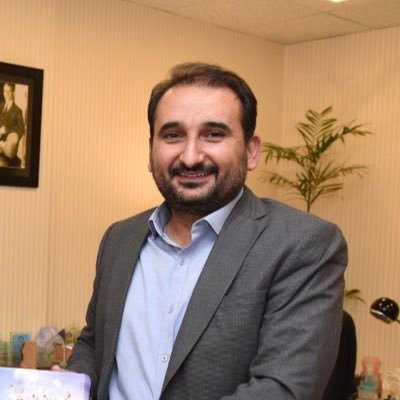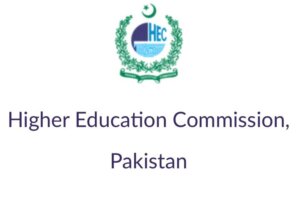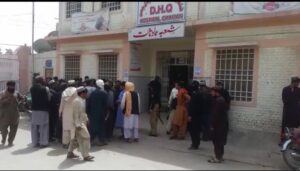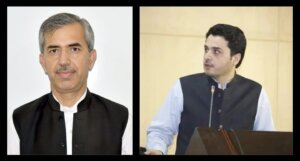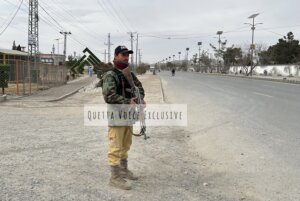Dr. Faisal Ahmed Khan
LISTEN ARTICLE
One thing, if it’s missing, will destroy any individual, family, team, organization, nation, economy, or civilization. That one thing is trust. In recent years, our country has incessantly depleted trust from individual to collective levels resulting in mediocrity at every level in the society—from homes to the highest institutions of governance. In this situation, it is foolish to expect that we can make any substantial contribution in the global arena in any sphere of human invention and productivity. However, the good news is—as social scientist maestros put it—trust can be created much faster and pretty much independently without waiting for other factors in the system to rectify.
To study the trust behavior of our people, especially the youth, on trust and how to create this critical value among them, I along with fellow faculty and students at BUITEMS University, Quetta experimented with a concept we call Honesty Mart. In Honesty Mart, we place food and snacks like chocolates, chips, cookies, juices in a stall with a money box. There is no shopkeeper in the mart. Every item is price tagged and shoppers simply pick items of their choice and put the money in the money box. When we first started the experiment, we were worried considering the trust level in the society especially about the youth, we were worried if we’d find our money box back at the end of the day (it was a small carton box), expecting money for what shoppers picked was something ridiculous to even think about. On our first experiment day, we found our stall in a mess at the end of the day, all items, of course, were taken away or sold out, thankfully we found our money box lying where it was.
About 58 % of items were paid off
About 58% of items were paid off while the rest were taken away. It was not entirely disappointing, so we thought to continue. We kept on experimenting. And within about a month’s time, attaining about 12% more trust each week in our experiment, we witnessed in the fourth week that 100% people were paying back whatever they picked up from the stall with no one watching. Imagine the power and speed of developing trust. It’s a public university and the students body represents very diverse segments of our society.
The affects of promoting trust are wide and it can improve
The effects of promoting trust are wide and it can improve virtually every other aspect of human behavior. In another real-life experiment, we attempted to improve student behavior and prevent vandalizing of noticed boards, again at BUITEMS. Usually, notice boards at public universities are susceptible to vandalization, therefore, they are framed and locked. We removed the frames and locks on the notice boards and went one step further. We invited feedback from the students on different aspects of the university on charts posted on the notice boards with cool marker pens placed near the notice boards. As you would expect, some students wrote weird comments, used abusive language on the charts, and took away the marker pens. However, the majority of the comments were thoughtful and courteous suggestions. We repeated the experiment three times, and the third time all our marker pens were retained, and literally, all comments were genuine and courteous. To this day, all notice boards remain open, and student vandalizing behavior of any property on campus has improved. When you extend trust, people become more trustworthy.
Unfortunately, in our society, all that has been done to counter mistrust and dishonesty is by introducing more checkpoints of verification and accountability to catch a few bad apples. While this approach may be aimed at creating deterrence against dishonesty, it is itself susceptible to abuse in the third world since the power remains concentrated to a small segment of the society and they will exploit it to their benefit. And the overall impact on the citizens would result in more mistrusted individuals, organizations, and communities. And since mistrust induces deception, therefore, more people will adopt roguery. And the handful of trustworthy individuals left in a community or organization, caught in the unending authentication loops, will produce very little in the low trust society.
More checks, the outcome remains erratic
If you recall from 2013, fake degrees of a few parliamentarians resulted in their degree verifications, and this has caused the whole nation’s degrees to be verified by the Higher Education Commission (HEC) and it has continued since then. Similarly, imagine applying for a new utility connection, gas, or electricity—checks and balances in the office have gained nothing except opening more opportunities for the concerned officers to rip the citizens off for more bribes. Or imagine an ordinary citizen’s experience at any public office, the infinite attestations, stamp papers, signatures, stamps, waits, kinship, and friendships exerted, the outcome remains erratic. Imagine the overall impact of lack of trust in this atmosphere.
A basic prerequisite for a nation’s growth and the bedrock of progress in any society remains trust. To put it in the words of the famed trust specialist and writer Stephen M. R. Covey, “trust is the highest form of human motivation”. And the most sustainable way to instill trust in our society is by cultivating it in children and the youth. If we can promote trust among our children at homes, schools, and universities we can build a trusted and prosperous nation.
The author is Pro Vice-Chancellor at BUITEMS, he can be contacted @faisalkakar on Twitter
